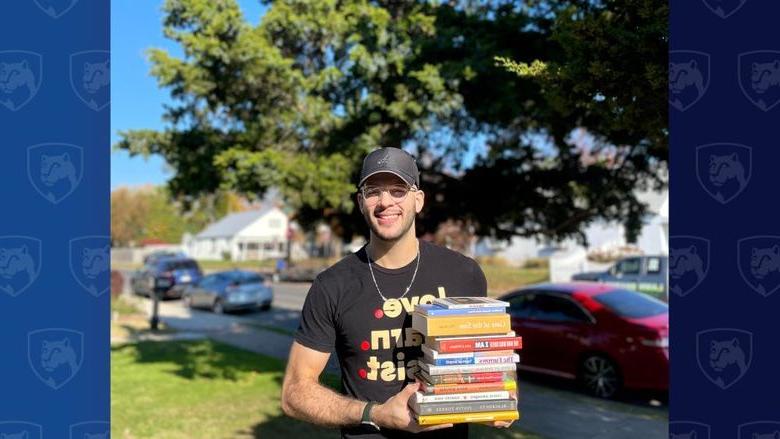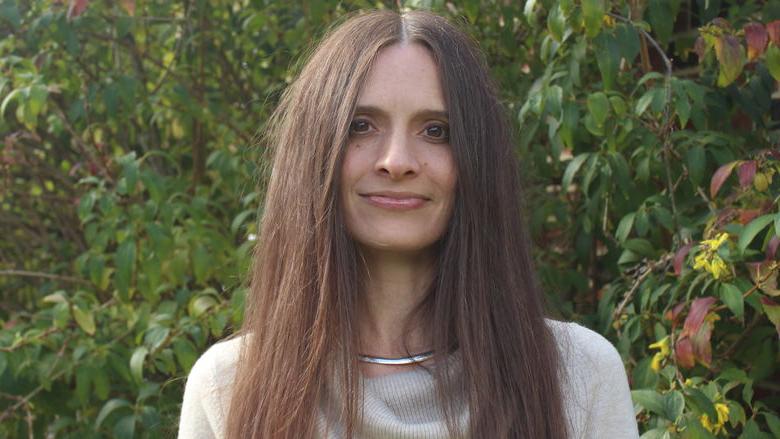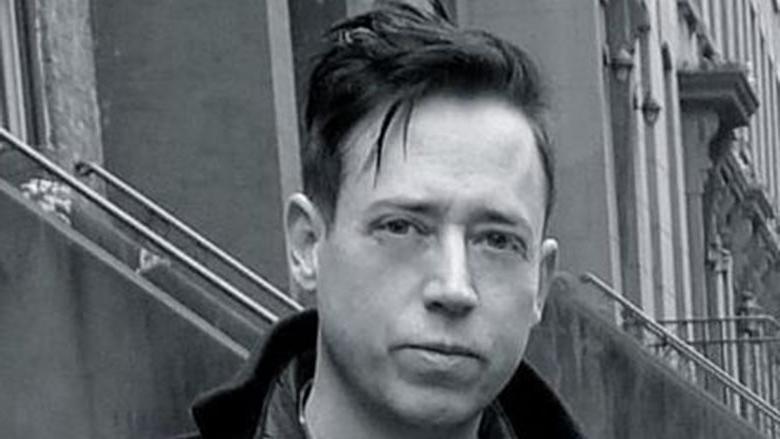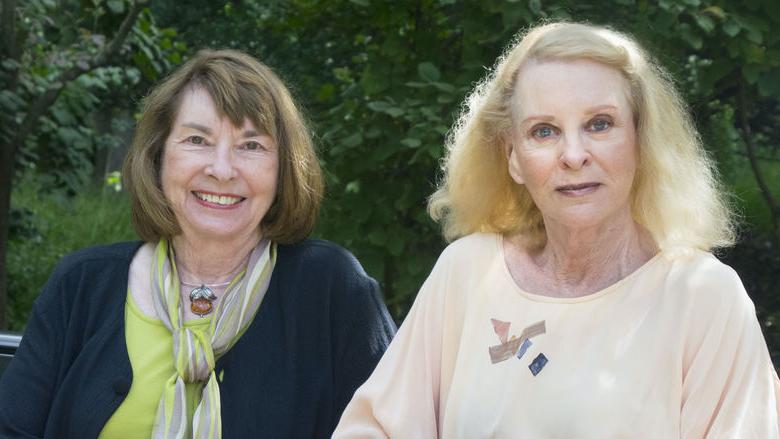Fall 2022 Course Descriptions
English Program and Writing Program
Penn State Abington
ENGLISH MAJOR REQUIREMENTS:
Traditions of Innovation
- ENGL 200 or 201: ENGL 201
- Medieval through Sixteenth Century: N/A
- Sixteenth Century through Eighteenth Century: ENGL 447
- The Nineteenth Century: ENGL 452
- Twentieth Century to the Present: ENGL 400
- Literature, Writing, or Rhetoric: ENGL 050, ENGL 183N, ENGL 201, ENGL 212, ENGL 215, ENGL 224N, ENGL 400, ENGL 412, ENGL 415, ENGL 420, ENGL 429, ENGL 452
- Diversity: ENGL 452
- Senior Seminar: ENGL 487W
Writing and Literature in Context
- ENGL 200 or 201: 201
- Pre-1800: ENGL 447
- Post-1800: ENGL 452, ENGL 400
- Literature, Writing, or Rhetoric: ENGL 050, ENGL 183N, ENGL 201, ENGL 212, ENGL 215, ENGL 224N, ENGL 400, ENGL 412, ENGL 415, ENGL 420, ENGL 429, ENGL 452
- Senior Seminar: ENGL 487W
- Diversity: ENGL 452
WRITING MINOR COURSES: ENGL 050, ENGL 212, ENGL 215, ENGL 412, ENGL 415, ENGL 420. Note that ENGL 004 and GWS courses do not count toward the Minor.
ENGLISH MINOR COURSES: All ENGL courses here count toward the English Minor. Note that ENGL 004 and GWS courses do not count toward the Minor.
ENGL 050: Introduction to Creative Writing (GA)
Professor Heise
Want to write, but aren’t quite sure how to get started or what to write about? This course is meant to ignite your interests, hone your skills, and introduce you to the foundational elements of poetry, fiction, and creative nonfiction so as to set free your imagination. You will learn to craft images, music, lines, and narrative in the poetry we practice. In fiction, you will learn how to create characters, develop themes, modulate tone and atmosphere, plot a conflict, and manipulate setting. And you will learn to translate and reconstruct personal experience, memory, and research into arguments, scenes, and narratives for creative nonfiction. Along the way, our conversations will turn to the writing and revision process, to why one writes in the first place, and to age-old inexhaustible questions, such as, what are the functions and purposes of poetry, short story, and the essay, what is the difference between truth and fact, and what are the ethics of writing about our own lives and the lives of others. In this course, you’re a writer. And that means you will be writing all the time in an exercise of imagination and perseverance. ENGL 050 welcomes all students interested in creative writing: no previous creative-writing experience is necessary.
ENGL 183N The Cold War In Literature, Politics, and History (GH)
Professor Pack
At 8:15 a.m. local time in Hiroshima, Japan, the atomic bomb Little Boy was released from the Super Fortress Enola Gay. The bomb detonated 1,900 feet above the city with the resulting blast destroying everything within a one-mile radius of the epicenter. Estimates state that approximately 70% of the buildings in Hiroshima were destroyed. Conservative estimates put the total deaths at about 130,000. As the now iconic mushroom cloud rose over the Japanese landscape, so too did the specter of nuclear annihilation rise over the whole of the planet. After the subsequent bombing of Nagasaki just three days later, it became apparent to the entire world that the days of direct combat between world powers may well be over, and that a new age of unprecedented potential destruction was set to begin. It was the dawning of the nuclear era and the dawning of a creeping paranoia in the mind of every citizen of the world. In our English 183N class we will study texts, both fiction and nonfiction, to explore how nuclear weapons influenced the Cold War, as well as view films that accurately captured the tension and global fear of mutually assured destruction that has dissipated since the fall of the Soviet Union.
ENGL 201: What Is Literature?
Professor Archer
What is literature? It’s an open-ended question that we will visit often this semester. This course is designed to introduce students to various works of literature and to a brief selection of theoretical schools of thought about literature. Upon successful participation in the course, students will obtain an introduction to literary texts within the three main genres (poetry, prose, and plays); understand some of the major theoretical schools and their historical, social, and cultural contexts; think critically about concepts such as “author,” “text,” “intent,” and other terms; and engage outside scholarship in their writing. This course is broken up into three main units, each of which includes three weeks of lecture and discussion followed by one major essay. In addition to the course’s pre-selected readings, students are welcome to choose readings on their own that they think will work well for the course and to incorporate those into the work that we do this term as well.
ENGL 212: Introduction to Fiction Writing (Stacked with ENGL 412)
Professor Pack
Our ENGL. 212 class will explore the writing of fiction in three forms— the short-short, the short story, and the novel. Students will peer review one another’s writing in a workshop environment where feedback will offer close readings of narrative and character in a safe, equitable environment that nurtures talent and creativity. Students will supplement their own creative works by reading established American writers from the early 20th Century to our current time. Fiction created for this class will be submitted to Penn State Abington’s literary and arts magazine The Abington Review for publication in the 2022 edition of the magazine.
ENGL 215
Professor Cohen
Share your perspectives on campus and community issues! In this course, you will research, compose,edit, and publish articles for our digital news outlet The Abington Sun.
Over the course of the semester, you will work with a team of editors to build your writing skills as you work to publish well-researched, impactful articles.You can choose what to write about from a range of subjects which might include things like politics,current events, sports and arts and culture. If you like to write, are interested in learning and writing about current events, and want to see your work published, ENGL 215/415 is the place for you!
If you're new to The Abington Sun, you can register for ENGL 215. If you've worked with us before, you can advance your skills in ENGL 415.
ENGL 224N
Professor Cohen
Study abroad with Penn State—in Scotland
The art and creative writing programs invite you to participate in Narrative Arts in Scotland, a course featuring collaboration on a multimodal story with colleagues at the University of Dundee in Scotland’s UNESCO City of Design. You will explore Scotland’s rich history and social concerns by participating in workshops with local artists and authors, visiting museums, and experiencing sites in the Highlands ranging from 20th century Arctic exploration vessels, to Medieval castles, to Neolithic stone circles.
Authors call it “multimodal,” designers tag it “transmedia,” artists are inspired by Will Eisner’s term “sequential,” but these all explore a common idea: conveying story through sequential, often multimedia, formats. Though contemporary, their roots burrow surprisingly deep into other times and cultures, and they create immersive narrative experiences. For the audience, the allure lies in synthesizing elements into a whole. For authors, the challenge is to develop elements in such a manner that the arc of the narrative universe may be experienced in a manner unique to the individual spectator.
English 400: Modernism and the Lost Generation (Stacked with ENGL 487W)
Professor Miller
This course will focus on the American expatriate writers whose experimental art emerged triumphant during the 1920s, the heyday of Modernism in France. We will assess the art (writing and painting) and the relationships (both professional and personal) among F. Scott Fitzgerald, Ernest Hemingway and other American artists who, following World War I, had come to France and then stayed the decade. These artists gathered in Paris and on the French Riviera, particularly at Gerald and Sara Murphy’s Villa America, where they collectively helped to shape American modernist art. The reading and class discussions will emphasize works by Fitzgerald and Hemingway, along with selections from experimental writer Gertrude Stein, modernist poet Archibald MacLeish, and such New Yorker writers as Dorothy Parker. Our assessment of this art in its historical, biographical and cultural contexts will include a class trip to the Barnes Foundation to see the modern art brought back from Paris to Philadelphia during this time. This class will be conducted as a kind of literary “salon” reminiscent of 1920s Paris, where those with creative minds and spirits gathered to redefine their world through their art.
ENGL 412: Introduction to Fiction Writing (Stacked with ENGL 212)
Professor Pack
Our ENGL. 412 class will explore the writing of fiction in three forms—the short-short, the short story, and the novel. Students will peer review one another’s writing in a workshop environment where feedback will offer close readings of narrative and character in a safe, equitable environment that nurtures talent and creativity. Students will supplement their own creative works by reading established American writers from the early 20th Century to our current time. Fiction created for this class will be submitted to Penn State Abington’s literary and arts magazine The Abington Review for publication in the 2022 edition of the magazine.
ENGL 415: Advanced Article Writing
Professor Cohen
Share your perspectives on campus and community issues! In this course, you will research, compose, edit, and publish articles for our digital news outlet The Abington Sun.
Students in ENGL 415 will build on the skills they learned in ENGL 215 to conduct primary research--conducting interviews and analyzing data, in order to generate ideas for stories of interest to our campus community. Students will pitch their story ideas weekly to an audience of their peers, and decide collectively with editors which stories will move forward. Over the course of the semester, each student should plan to produce and publish several news articles and feature pieces, improving writing skills in a hands-on process as they work to publish well-researched, impactful articles. Subjects for articles range from politics to current events, sports and arts and culture. Feel free to browse past topics at The Abington Sun. If you like to write, are interested in learning and writing about current events, and want to see your work published, ENGL 215/415 is the place for you! If you haven’t worked with us before, you should enroll in ENGL 215. If you’re a veteran of our writing staff who wants to further hone your skills, you should register for ENGL 415. If you’re interested in gaining editorial experience, fill out an application for a position as Editor here.
ENGL 420: Writing for the Web
Professor De Piero
Writing for the web isn’t limited to typing words on a webpage; it means communicating to expansive audiences through images, sound, and video. From audience awareness to audio/visual production, we’ll study the theoretical and technical aspects of how digital texts are produced, consumed, and distributed across online contexts. Of course, to gain authentic practice with writing for the web, we’ll need to actually write for the web. That means I’ll be expecting you to publish your work online. We’ll write a consumer review, participate in a community blog, craft a “How to” YouTube video, and reflect on our countless writerly decisions. If you don’t consider yourself to be tech savvy, that’s OK: throughout the semester, we’ll collaborate with the Penn State Media Commons team to learn the nuts’n’bolts of Adobe Rush, and they’ll also be available to guide you through many of your other questions.
ENGL 429
Professor Cohen
Study abroad with Penn State—in Scotland
The art and creative writing programs invite you to participate in Narrative Arts in Scotland, a course featuring collaboration on a multimodal story with colleagues at the University of Dundee in Scotland’s UNESCO City of Design. You will explore Scotland’s rich history and social concerns by participating in workshops with local artists and authors, visiting museums, and experiencing sites in the Highlands ranging from 20th century Arctic exploration vessels, to Medieval castles, to Neolithic stone circles.
Authors call it “multimodal,” designers tag it “transmedia,” artists are inspired by Will Eisner’s term “sequential,” but these all explore a common idea: conveying story through sequential, often multimedia, formats. Though contemporary, their roots burrow surprisingly deep into other times and cultures, and they create immersive narrative experiences. For the audience, the allure lies in synthesizing elements into a whole. For authors, the challenge is to develop elements in such a manner that the arc of the narrative universe may be experienced in a manner unique to the individual spectator.
ENGL 447: The Restoration and Eighteenth-Century
Professor Rigilano
The Neoclassical Era (1660–1776) is often characterized as genteel, sedate, and of limited relevance today: lots of wigs, florid letters, and polite dancing. But if you actually spend time with the period’s literature, a very different picture emerges. This course reveals just how strange and exciting the literature of Restoration and Eighteenth-Century Britain really is. Writers in this period regularly challenged neoclassical ideals of measure and propriety, and their texts suggest that Enlightenment ideas about nature, sensation, and even the self are far less stable, and much weirder, than you might have imagined. We will begin with the licentious poetry of the libertine Rochester, study of the puns and plots of William Wycherley’s Country Wife (1675), analyze the blistering satire of Jonathan Swift, survey the macabre cartography of Daniel Defoe’s Journal of the Plague Year (1722), observe the disorienting masquerade of Eliza Haywood’s short prose romance, Fantomina (1725), interpret the comic scenes of the artist William Hogarth, examine Horace Walpole’s gothic creation, The Castle of Otranto (1764), and ponder the transatlantic through the brilliant verse of Phillis Wheatley.
ENGL 452: The Victorians
Professor Walters
In this course, we will examine literature written during the Victorian period: 1837-1901. We will also focus on how the city of Philadelphia helped to shape many important ideas preoccupying British writers and thinkers in this period. This historical and literary era was marked by dramatic social change, race and class conflicts, imperial expansion, and sexual upheaval. Given this, throughout this course, we will consider the complex and international nature of British identity considered in the texts we analyze. Together, we will study a variety of literary genres, such as the novel, the poem, and non-fictional prose. Moreover, thanks to the Penn State Seeding Change grant, students in this class will gain experiential knowledge of how nineteenth-century social systems, such as mass incarceration and scientific racialism, were part of the literal and cultural landscape of nineteenth-century Philadelphia. We will visit the Eastern State Penitentiary and the College of Physicians of Philadelphia (now the Mütter Museum)--free of charge to students--because both places contributed to a transatlantic discussion about social institutions like race and the ethics of penal incarceration. In this class, students will reflect upon how these nineteenth century institutions continue to structure modern life--at large and in the Philadelphia region. This course fulfills the Post-1800 or 19th-Century requirement of the English Major. ENGL 452 also fulfills the Diversity requirement for the English Major.
English 487W: Modernism and the Lost Generation (Stacked with ENGL 400)
Professor Miller
This course will focus on the American expatriate writers whose experimental art emerged triumphant during the 1920s, the heyday of Modernism in France. We will assess the art (writing and painting) and the relationships (both professional and personal) among F. Scott Fitzgerald, Ernest Hemingway and other American artists who, following World War I, had come to France and then stayed the decade. These artists gathered in Paris and on the French Riviera, particularly at Gerald and Sara Murphy’s Villa America, where they collectively helped to shape American modernist art. The reading and class discussions will emphasize works by Fitzgerald and Hemingway, along with selections from experimental writer Gertrude Stein, modernist poet Archibald MacLeish, and such New Yorker writers as Dorothy Parker. Our assessment of this art in its historical, biographical and cultural contexts will include a class trip to the Barnes Foundation to see the modern art brought back from Paris to Philadelphia during this time. This class will be conducted as a kind of literary “salon” reminiscent of 1920s Paris, where those with creative minds and spirits gathered to redefine their world through their art.





